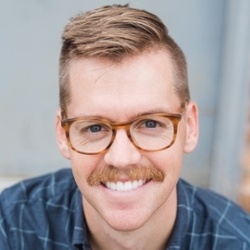German Studies

Major or minor in German studies
You can take a full range of language courses, as well as two to three English-language seminars per year on German topics. Upper-level courses focus on a specific period in German cultural history or a specific aspect of literature, such as recent courses about the fall of Berlin Wall, sexology in Berlin and Vienna, and masculinity in the 1920s.
At all levels you will complete a variety of creative projects, such as designing a digital mapping exhibit about refugees using ArcGIS and Neatline, creating a lifelike reenactment of life in East Germany, or adapting the Grimms' Fairy Tales in a variety of media. Whether you enter college with substantial previous study in German or none at all, there are a host of courses, clubs, and events to push boundaries and develop language skills and cultural competencies.

"German Studies at Cornell is more than a language program. It is at once a venue to explore German history and culture in both German- and English-language courses, a laboratory for innovative projects in German at the advanced level, and a linguistic and cultural passport to German-speaking Europe."—Tyler Carrington, Associate Professor of German Studies and History
Learning languages on the block plan
Why German?
You may wish to pursue German studies as your primary field of study or as a complement to other majors, because Germany is firmly planted at the center of European and world affairs. It has the largest economy in Europe, is the global leader in green technology and innovative environmental policy, and is the home of multiple high-tech industries, from solar panel production to high-end electronics and automobile design. Germany is also widely seen as the political center of Europe and a critical player in international politics and diplomacy.
German is the business language of Europe. BASF, Siemens, and BMW all have U.S. offices, and dozens of American corporations like John Deere and Collins Aerospace have operations in Germany. The U.S. State Department is also keenly interested in Germany. With a background in German, you have access not only to economic and political opportunities in a global world, but also to thinkers like Kant, Freud, Hegel, Marx, Nietzsche, Kafka, Rilke, and Thomas Mann.
Germany's culture is vibrant, multicultural, and diverse, as demonstrated by the award-winning films of Faith Ak1n, the fiction of Anna Seghers, Christa Wolf, Emine Sevgi Özdamar, the poetry of Zehra Ç1rak, the political satire of Noah Sow, the theatrical productions of the Ballhaus Naunynstraße. The ongoing social, cultural, and economic integration of over a million refugees from the Middle East will also shape German life moving forward.
Benefits of One Course At A Time
Off-campus study
Cornell's block plan makes it easy for you to arrange educational opportunities abroad. For example, it's possible to take two blocks and intern with the German parliament on a DAAD-Bundestag scholarship. You can apply for any number of internships in the natural and applied sciences at German laboratories and businesses.
You can choose from a list of about 30 approved study abroad programs. With the flexibility provided by the block plan, you can study abroad for a month or two, or you can pursue a more traditional semester or yearlong program. Most students go abroad during their junior year, after they have completed a 300-level German course.
The Goethe Institute, which supports German training centers throughout Germany and around the world, provides an especially excellent match for the block plan because courses are offered for one month (about the length of one block at Cornell), two months, or longer. The semester-long Vienna Program sponsored by Central College is another popular option. Tuition at German universities is free, even for non-Germans, making these programs very affordable.
Internships and fellowships
One Cornell student recently participated in a Fulbright English Teaching Assistantship in Germany, and another received a DAAD Fellowship through the German Academic Exchange Service, a publicly funded independent organization of higher education institutions in Germany. A senior physics major recently spent a month at the Albert Einstein Institute in Hannover working on fiber optics, and a German and art history student is also interning with the Amana Heritage Museum in Eastern Iowa's famous Amana Colonies. Make sure to check in with the career coaches at the Berry Career Institute to see if they can help you find the right internship or fellowship for your area of interest.
Cookie Policy
Cornell College asks you to accept cookies for authorization purposes, as well as to track usage data and for marketing purposes. To get more information about these cookies and the processing of your personal information, please see our Privacy Policy. Do you accept these cookies and the processing of your personal information involved?
